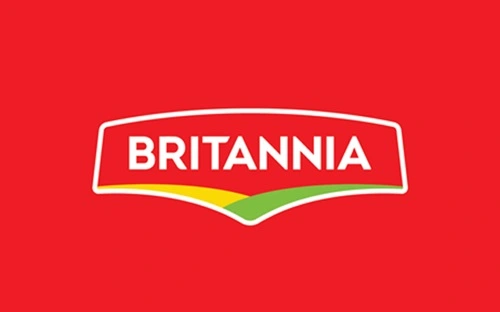Britannia Industries Limited, one of India’s leading food companies, has a legacy that dates back over a century. Established in 1892, the company has become synonymous with quality and innovation in the Indian food industry. Britannia’s product portfolio spans across a wide range of categories, including biscuits, dairy products, cakes, bread, and more, making it a household name across the country. As the company navigates through 2024, a SWOT analysis offers valuable insights into its strategic position and future prospects.
Current Overview of Britannia

As of 2024, Britannia continues to hold a dominant position in the Indian food market, with a market share that surpasses many of its competitors. The company has been expanding its product offerings, especially in the health and wellness segment, to cater to the evolving preferences of health-conscious consumers. Despite facing intense competition from both domestic and international players, Britannia has maintained its leadership in key product categories, including biscuits. However, the company’s reliance on the Indian market remains a critical point of consideration, especially as it explores avenues for global expansion.
SWOT Analysis
Strengths
1. Strong Brand Legacy: Britannia’s rich history and strong brand identity have made it a trusted name in Indian households. The brand’s commitment to quality and innovation has fostered deep consumer loyalty, giving it a significant edge over competitors.
2. Diverse Product Portfolio: Britannia offers a wide range of products, catering to various consumer tastes and preferences. This extensive product portfolio not only helps in capturing a broad market but also mitigates the risks associated with over-dependence on a single product category.
3. Robust Distribution Network: Britannia’s extensive distribution network ensures its products reach every corner of the country, from urban areas to the remotest villages. This wide reach has been a crucial factor in its sustained market dominance.
4. Strategic Partnerships: Collaborations and partnerships have played a key role in Britannia’s growth. These alliances have helped the company enhance its product offerings and enter new markets, both domestically and internationally.
Weaknesses
1. Dependence on the Indian Market: Despite its success in India, Britannia’s global presence remains limited. With only a small percentage of revenue coming from international markets, the company’s over-reliance on the Indian market could be a vulnerability, especially in times of economic downturns or market saturation.
2. Intense Competition: The Indian food industry is highly competitive, with major players like Parle, ITC, and Sunfeast vying for market share. Britannia’s failure to differentiate itself significantly in some product categories could lead to a loss of competitive advantage.
3. Limited Product Differentiation: In certain segments, Britannia’s products face stiff competition from other established brands. The lack of unique differentiation could limit its ability to attract new customers, especially in the face of innovative offerings from competitors.
Opportunities
1. Health and Wellness Segment: The growing trend towards healthy eating presents a significant opportunity for Britannia. By introducing more low-calorie, sugar-free, and fortified products, the company can tap into the increasing demand for nutritious food options.
2. Global Expansion: Expanding its footprint in international markets, particularly in regions like the Middle East, Africa, and Southeast Asia, offers Britannia a substantial growth opportunity. Leveraging its strong brand reputation, the company can explore new markets and diversify its revenue streams.
3. Digital and E-commerce Growth: The rise of e-commerce and digital marketing provides Britannia with an opportunity to reach a wider audience. By enhancing its online presence and leveraging data analytics, the company can better understand consumer behavior and tailor its marketing strategies accordingly.
4. Product Innovation: Innovation remains a key growth driver for Britannia. The company can explore new product categories, such as healthy snacks, plant-based products, and premium offerings, to stay ahead of market trends and consumer preferences.
Threats
1. Economic Fluctuations: The food industry is susceptible to economic cycles, and any downturn in the economy can impact consumer spending on premium products, affecting Britannia’s sales and profitability.
2. Volatile Raw Material Prices: The prices of key raw materials, such as wheat, sugar, and dairy, are subject to market volatility. Fluctuating costs can squeeze profit margins, especially if Britannia is unable to pass on these costs to consumers.
3. Regulatory Challenges: Changes in food safety regulations and policies can pose a threat to Britannia’s operations. Compliance with stringent regulations in both domestic and international markets can increase operational costs and impact profitability.
4. Shifting Consumer Preferences: Rapid changes in consumer preferences, driven by health concerns and lifestyle changes, can pose a challenge for Britannia. The company must continuously innovate to keep up with these evolving trends or risk losing market share to more agile competitors.
Conclusion
Britannia Industries Limited is well-positioned to continue its leadership in the Indian food industry. The company’s strengths, such as its strong brand legacy, diverse product portfolio, and robust distribution network, provide a solid foundation for growth. However, it must address its weaknesses, particularly its dependence on the Indian market and the intense competition it faces. By capitalizing on opportunities in the health and wellness segment, global expansion, and product innovation, Britannia can mitigate potential threats and secure its position as a leading player in the global food industry. Moving forward, Britannia’s ability to adapt to changing market dynamics and consumer preferences will be crucial to its sustained success.